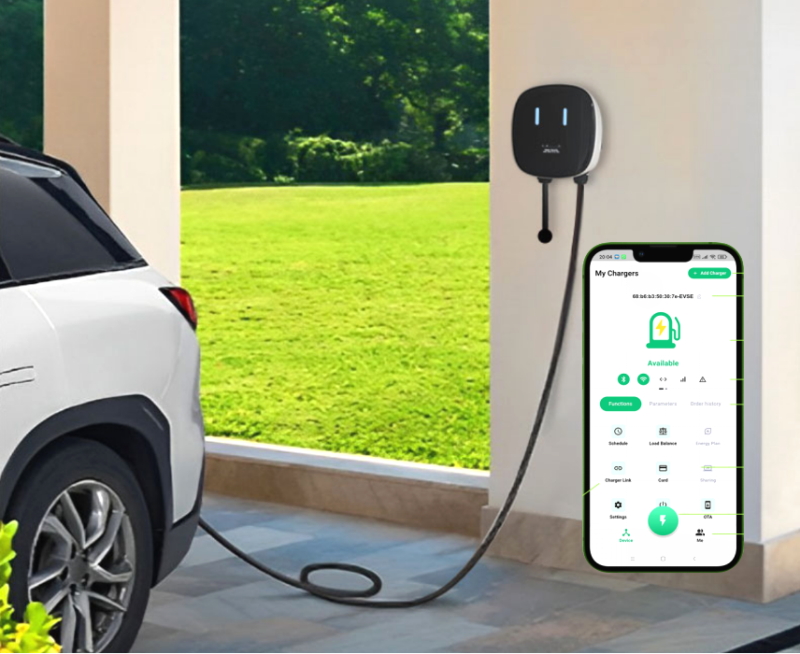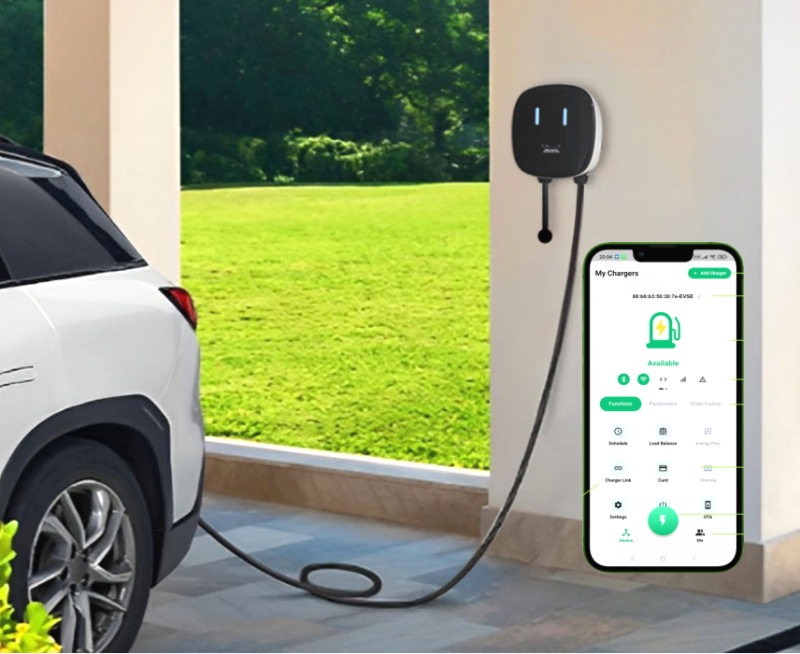
Latest news
- Nissan Unveils Bidirectional Onboard C
- Milence Launches First Charging Hub in
- Norway Likely Delaying Electric Van De
- India Unveils Five-Year Plan to Introd
- Hyundai Collaborates with Canadian Bat
- LG Energy Solution to Provide Batterie
Contact us
- ADD: 4-9-4 Jinkai International No. 1230 Jinkai RD, North of Chongqing China, 401122
- TEL: 0086-23-63425659
- FAX: 0086-23-63013491
- E-mail: bake@senkumachinery.com



Smart EV Charging Solution
- Product description: Smart EV charging represents a collection of innovative technologies aimed at enhancing the efficiency, affordability, and convenience of electric vehicle (EV) power delivery. Rather than a rigid fram
Product introduction
Smart EV Charging Solution
Smart EV charging represents a collection of innovative technologies aimed at enhancing the efficiency, affordability, and convenience of electric vehicle (EV) power delivery. Rather than a rigid framework, it evolves continuously, integrating both established and experimental capabilities to adapt to user needs and energy trends.
Progress in EV Technology
The shift toward electric mobility has accelerated alongside breakthroughs in vehicle and charging infrastructure. Early EV models, equipped with limited battery capacities (e.g., ~25 kWh), offered ranges barely exceeding 175 km. Current advancements have unlocked batteries averaging 64 kWh, enabling distances of 330 km or more, with premium models surpassing 600 km per charge. These strides extend beyond vehicles to charging systems, where intelligent solutions now play a pivotal role.
The Role of Energy Optimization
Home charging remains the preferred method for most EV owners, driven by the need to control expenses, minimize environmental impact, and align with smart home ecosystems. As energy costs climb and sustainability gains urgency, efficient power management has become a priority. Surveys indicate that over 60% of EV users prioritize energy-saving features when selecting home charging equipment.

Defining Smart Charging Systems
Next-gen charging stations transcend basic electricity transfer. By embedding digital interfaces, they facilitate communication between vehicles, residential energy networks, and utility grids. This synergy allows for adaptive charging routines tailored to user preferences, grid demands, and renewable energy availability.
Core Components of Smart Charging
- Connectivity: Enabled via cellular data or Wi-Fi, stations exchange real-time data with vehicles and energy management systems.
- Software Integration: User-friendly apps provide remote control, enabling scheduling, energy tracking, and system adjustments to maximize efficiency.

Advantages of Smart Chargers
Depending on the model, benefits may include:
- Customization: Adjust settings via mobile apps or voice-assisted platforms.
- Eco-Conscious Charging: Prioritize solar or wind energy to reduce carbon emissions.
- Grid Protection: Prevent overloads through adaptive power distribution.
- Cost Efficiency: Automate charging during low-demand periods for lower rates.
- Interconnectivity: Sync with home automation systems for seamless energy use.
Connected vs. Smart Chargers
While connected chargers offer basic remote access (e.g., via Bluetooth), truly intelligent systems incorporate advanced tools like bi-directional charging (vehicle-to-home or grid), real-time load adjustments, and renewable energy integration. These features elevate user control and grid resilience, distinguishing them from simpler connected models.
Embracing the Future
Smart charging marks a transformative step in EV adoption, merging convenience with ecological responsibility. By adopting these systems, users not only streamline their charging experience but also contribute to broader energy sustainability efforts, paving the way for a cleaner, smarter energy landscape.
Tags: #smartcharging #smatevcharging #evcharging


 Senku ,Bake
Senku ,Bake Senku
Senku